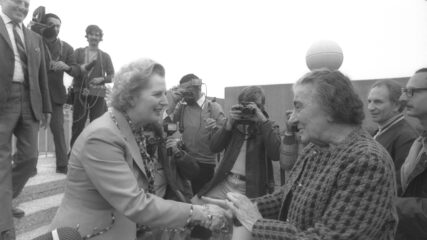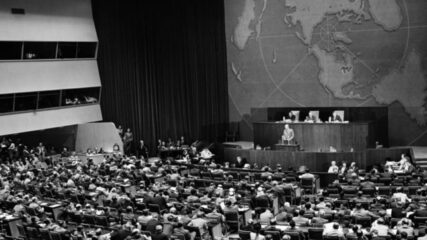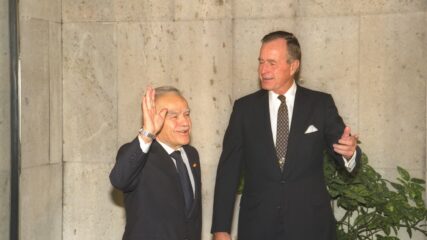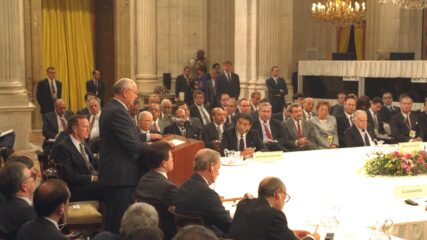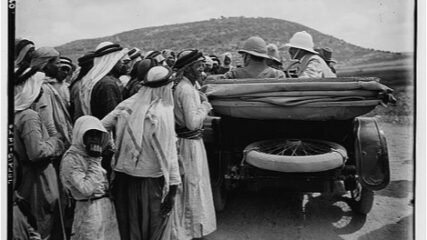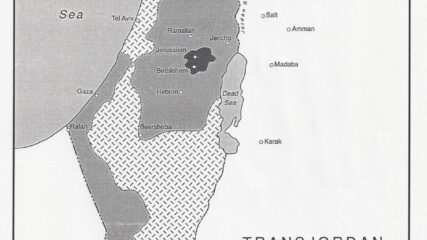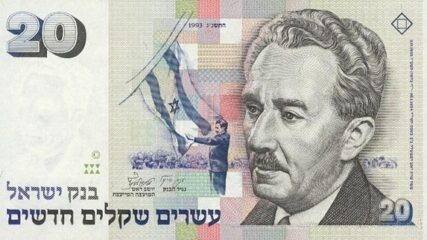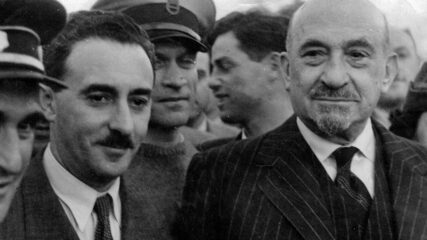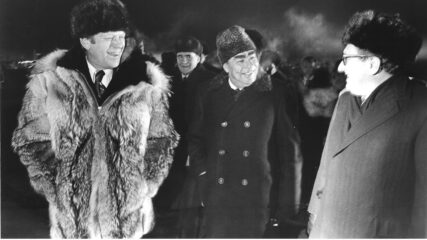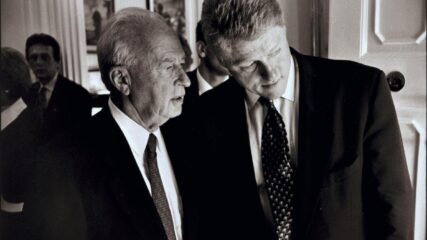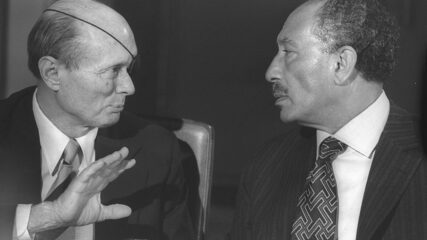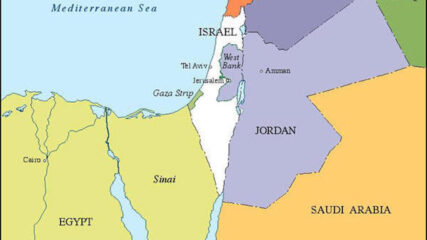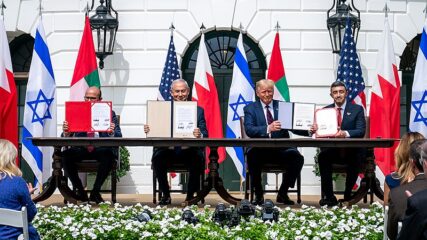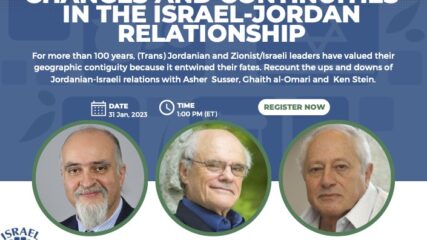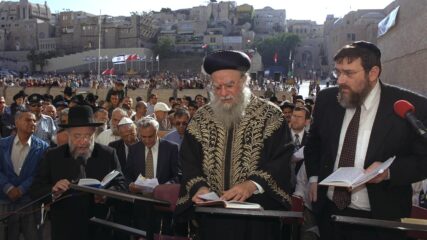April 29, 2025
The U.N. partition resolution in 1947 cleared the way for Israel to declare independence six months later, but since then the United Nations has largely been antagonistic and condemnatory toward Israel and a tool for the Palestinians and Israel's enemies.
December 6, 2018
In recognition of the anniversary of the United Nations' passage of Resolution 181 on November 29, 1947, we present our newest three-part whiteboard videos providing context to this historical moment in Jewish history.
May 14, 1947
Despite an officially anti-Zionist stance, the Soviet Union, hoping to adopt Israel as a Soviet proxy, takes a pragmatic stance and supports the U.N. partition plan of Palestine into separate Arab and Jewish states.
November 29, 1947
The UN recommended establishing Arab and Jewish states in Palestine, with an international regime for Jerusalem. Zionists were jubilant; Arab states and the Palestinians were indignant and rejected two state solution. No Arab state is established, Israel is in 1948
September 9, 1948
Subsequent to Israel's territorial successes from May 1948 forward, U.N. mediator Bernadotte is assassinated after suggesting smaller borders for Israel. He does not mention Palestinian Arabs in his interim report.
December 11, 1948
The resolution states that refugees “wishing to return to their homes and live at peace (with Israel) should do so or compensation be paid.” Israel opposes the idea because it jeopardizes Israel as a majority-Jewish state.
Spring 1949
The area of Israel expanded and the potential area for a Palestinian Arab state decreased because of the 1948-49 war, Israel’s War of Independence. The Arab rejection of the 1947 U.N. partition plan thus hurt...
May 11, 1949
Upon admission to the U.N., Israeli Foreign Minister Moshe Sharett said, "It was
the consummation of a people's transition from political anonymity to clear identity, from inferiority to equal status, from mere passive protest to active responsibility, from exclusion to membership in the family of nations."
December 1951
This report submitted to the United Nations at the end of 1951 notes that “some one million Jews have become the victims of accelerated antiSemitism” since 1948 in the Muslim countries of the Arab League and North Africa, “communities which have existed for thousands of years.” The report analyzes the situation for Jews overall and explains restrictions and oppressive measures country by country.
November 22, 1967
Resolution 242 calls for Israeli withdrawal from unspecified captured territories in return for the right of all states to live in peace. It does not call for a full withdrawal. It is the basis for treaties with Egypt (1979) and Jordan (1994) and for PLO recognition of Israel (1993).
October 22, 1973
The October 1973 war broke the logjam over whether diplomacy could unfold to kick off Arab-Israeli negotiations. Sadat used the 1973 war as an engine to harness American horsepower. In that he succeeded because U.S. Secretary of State Kissinger saw Sadat’s leaning to Washington not only as a chance to begin useful negotiations, but also of great significance to weaning the Egyptian president away from Moscow.
September 4, 1975
Cairo and Jerusalem agree to additional Sinai withdrawals, demilitarized zones, limited force zones and, importantly, placement of US civilians in Sinai to monitor observance of agreement.
November 10, 1975
Led by USSR and Arab states, Zionism is labeled as racist; the resolution is revoked in 1991.
March 22, 1979
Carefully sandwiched between Jimmy Carter’s high-risk visit to Egypt and Israel and the signing of those countries' peace treaty, the Carter administration allows the U.N. Security Council to deplore Israeli settlement building and demographic changes in Jerusalem.
July 20, 1979
This was the second UNSC Resolution within four months supported by the Carter administration condemning Israel's settlement building in the territories. It too greatly angered the Israeli government and American supporters of Israel.
March 1, 1980
Showing its public opposition to Israeli actions in the lands taken in the June 1967 war, an area that the Carter Administration
wanted reserved for Palestinian self-rule, it 'strongly deplores' Israel's settlement policies. Passage of the resolution three weeks
prior to the New York and Connecticut presidential primaries, cause many Jewish voters to vote in favor of Ted Kennedy
and not for Carter, helping to splinter the Democratic Party.
August 20, 1980
The United States abstains on a Security Council resolution declaring Israel's Basic Law on Jerusalem to be in violation of international law.
March 12, 2002
This is the first U.N. resolution to call for “two States, Israel and Palestine, to live side by side within secure and recognized borders.”
April 20, 2003
As a negotiating plan it seeks an end to the conflict with reciprocal performance objectives. Israel accepts the plan with some reservations; Hamas rejects it out of hand. The plan is not enacted.
August 11, 2006
This U.N. resolution ends the 33-day Israel-Hezbollah war but fails to bring the Israel-Hezbollah conflict to conclusion. Hezbollah fighters are not prevented from reoccupying the Israeli-Lebanese border areas, leading to repeated cross-border attacks and ultimately intensification after the Hamas attack on Israel in October 2023.
January 8, 2009
Following two weeks of Israeli-Hamas fighting, it calls for a cease-fire, and for a “lasting solution to the Israeli-Palestinian conflict by peaceful means.” The Hamas-Israeli war occurs again in 2013-2014.
November 24, 2014
Prosor accuses the UN of duplicity and hypocrisy because it is constantly critical of Israel, but not of radical Muslims for killing of Yazidis, Bahais, Kurds, and Christians.
December 23, 2016
With less than a month left in the Obama administration, the U.S. abstains on a Security Council resolution that blames Israel for the stalled peace process, lambastes Israeli settlements and repeatedly calls East Jerusalem occupied territory.
September 27, 2024
Netanyahu’s speech reflected on the needed elimination of Hezbollah as an enemy of Israel, a powerful militia fighting in Lebanon against Israel for four decades. On the day of Netanyahu's speech, the Israeli Air Force killed Hassan Nasrallah, the Hezbollah leader in his Beirut offices along with other Hezbollah officials.

